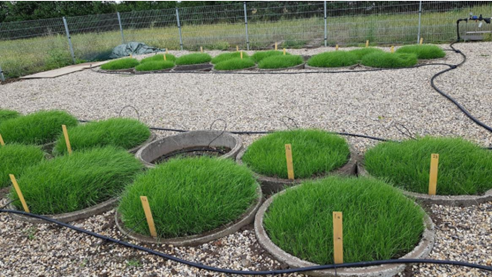The WETSUS Phosphorus Symposium took place in May 2022 in Leeuwarden, The Netherlands, as part of the first training week for the young researchers of the RecaP MSCA Innovative Training Network. During the symposium, experts from many EU countries gave presentations on phosphorus recovery, re-use and policy. Among them were also representatives of other EU projects such as P-TRAP (a similar network focusing on the interaction between iron and phosphorus) and LEX4BIO.
Ludwig Hermann from Proman, who leads Work Package 6 in LEX4BIO, gave an overview of the general objectives of the project in his presentation “LEX4BIO – characterizing and optimizing bio-based fertilisers” (BBFs), and explained the concept, structure and expected results of the project. Dorette Müller-Stöver included in her presentation on “Bio-based phosphorus fertilizers – potentials and barriers” the first results of a pot experiment with 32 BBFs and wheat as a model plant, which was conducted by master student Nadine Abu Zahra in Jakob Santner’s group at BOKU.
The study was part of the Work Package 3 activities and included currently or soon to be commercially available BBFs deriving from a wide range of different materials such as plant or animal by-products, precipitated phosphate salts and sewage sludge. In general, BBFS performed well compared to a mineral phosphorus control, with precipitated phosphate salts showing the highest short-term plant P availability, while some of the thermally treated products (such as biochar from sewage sludge or animal waste) had a lower immediate P fertiliser value.
The results reflect the high potential of bio-based fertilizers for replacing mineral phosphate, but at the same time also the range of effectiveness for the different materials. This underlines the need for adequate testing to assess their fertilizer value and potential use in specific agroecological systems, which is an important objective of LEX4BIO.

